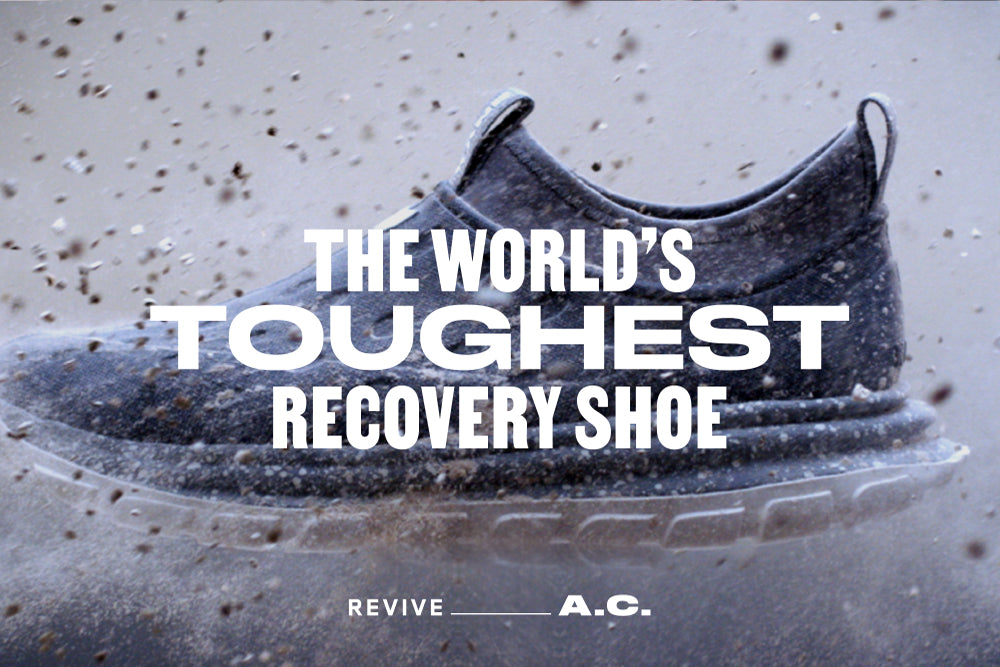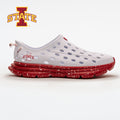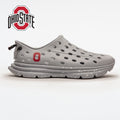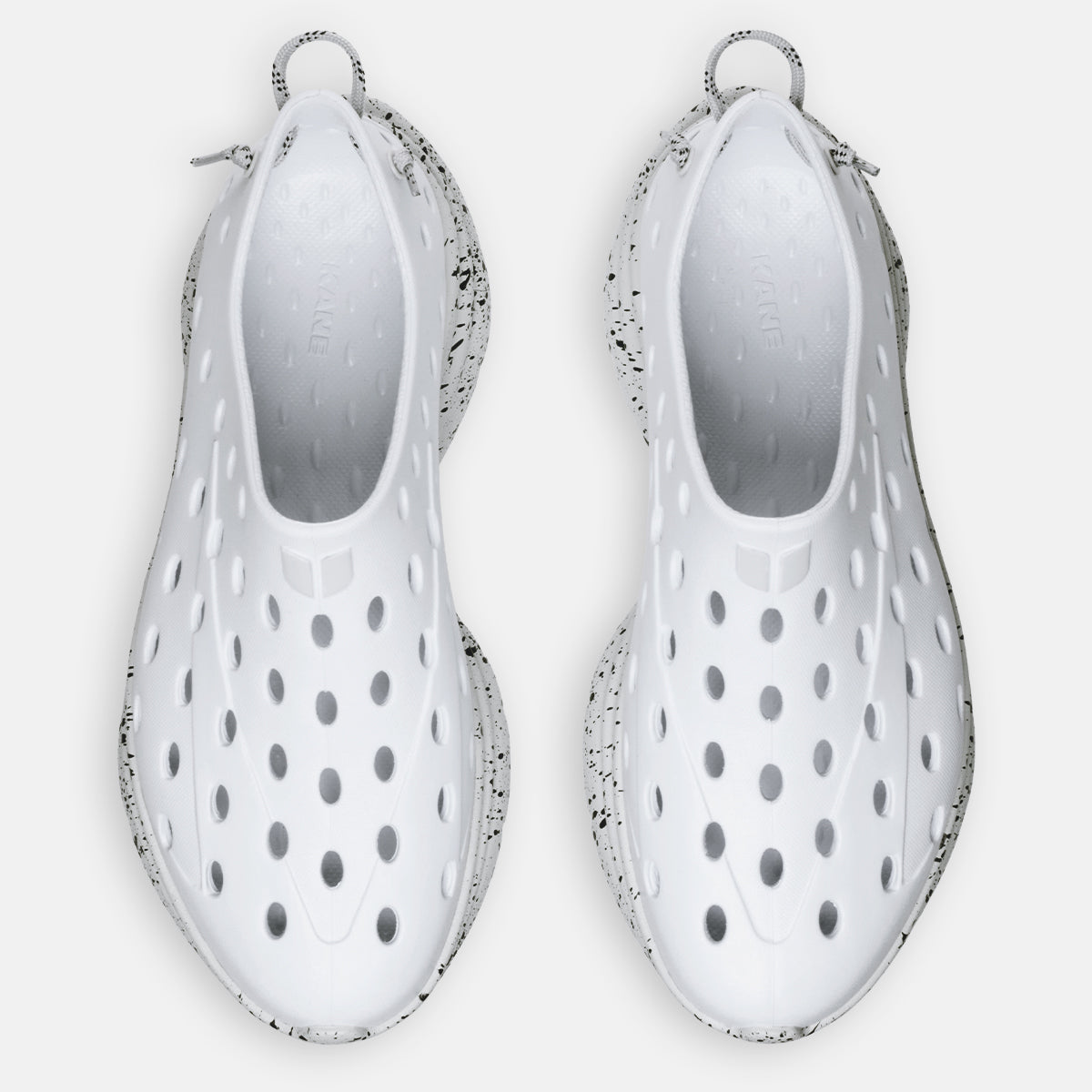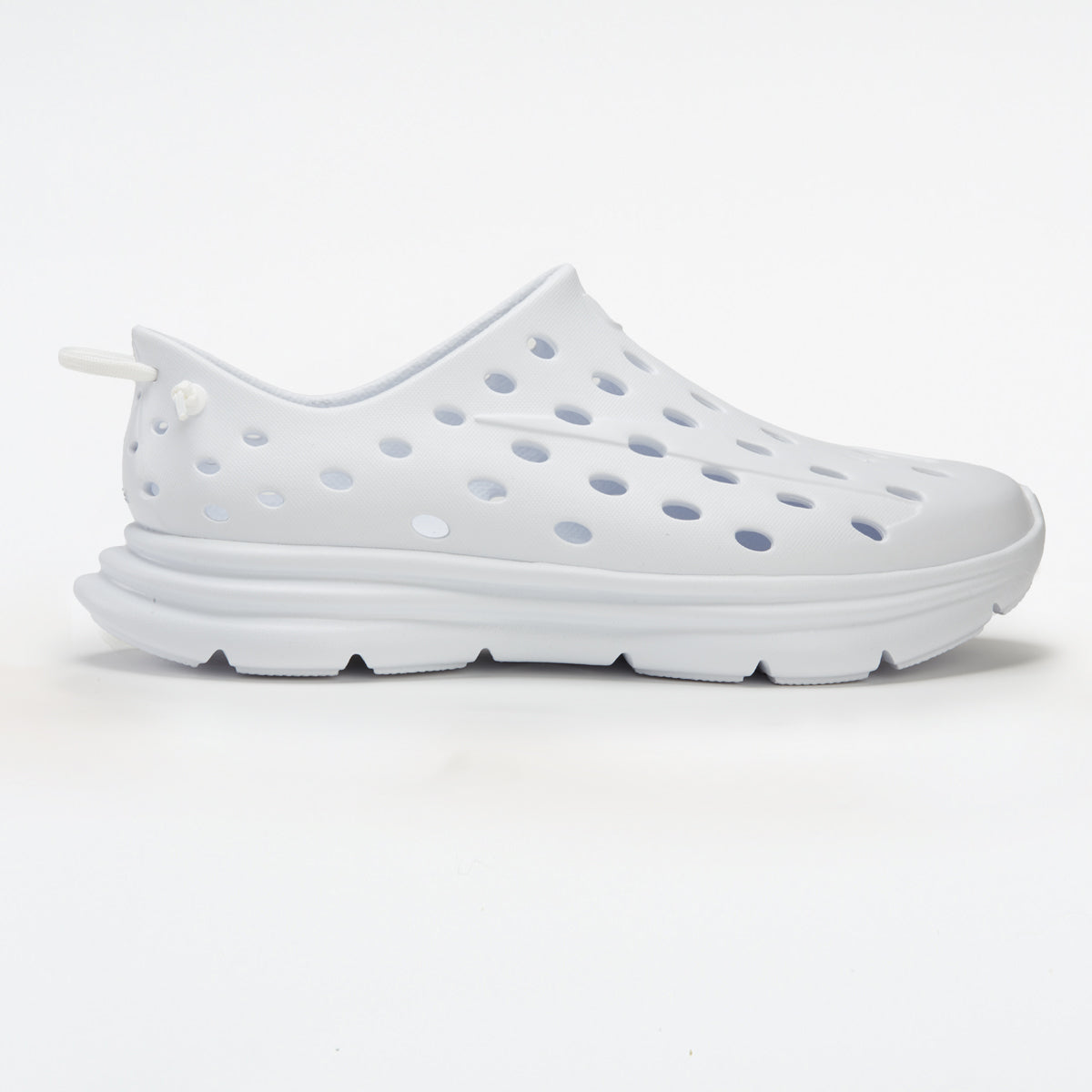Have you ever pushed yourself through a challenging workout, only to wake up feeling more exhausted than accomplished the next day? Post-workout fatigue can leave you questioning whether your fitness routine is doing more harm than good. But there's nothing wrong with mild fatigue after exercise — especially if you're getting back to the gym after a break or are new to working out. Feeling sore, sweaty, and tired after a workout is par for the course.
From the intensity of your workouts to the importance of recovery strategies, uncover why you might feel the burn long after you've left the gym or completed your home workout. Understanding these factors is the first step towards achieving a balanced and effective fitness routine that leaves you energized, not drained.
What causes exercise fatigue syndrome?
Exercise fatigue can stem from various factors. Understanding and addressing them by incorporating proper hydration, balanced nutrition, rest days, and stress management can help you maximize your workouts and minimize the risk of post-workout fatigue.
Intensity of exercise
The intensity of your workouts directly impacts the level of fatigue you may experience. Engaging in overly strenuous or high-intensity exercise, especially if you're new to a particular workout or have recently intensified your routine, can lead to muscle fatigue and exhaustion. Balancing the intensity of your workouts with your fitness level and gradually increasing the challenge can help prevent excessive fatigue.
Inadequate recovery time
Allowing adequate time for recovery is crucial for preventing exercise-induced fatigue. Muscles need time to repair and regenerate after a workout. Without sufficient recovery time, especially for high-intensity or resistance training (or any exercise working the same muscle group), the risk of muscle fatigue and decreased performance in subsequent sessions increases. Incorporating rest days and varying your workout intensity can support effective recovery.
Dehydration
Dehydration during exercise can lead to decreased performance and increased feelings of fatigue. When you're dehydrated, your body has to work harder to perform the same exercises, and this additional strain can contribute to overall tiredness. It's essential to stay well-hydrated before, during, and after your workouts to optimize performance and minimize fatigue.
Nutrient deficiencies
Insufficient levels of essential nutrients, such as iron or B vitamins, can contribute to fatigue. These nutrients play a crucial role in energy production and muscle function. A balanced diet that includes a variety of nutrient-rich foods can help address potential deficiencies and provide the necessary fuel for your workouts.
Poor sleep
Lack of adequate sleep can significantly impact your energy levels and increase susceptibility to fatigue. During sleep, the body undergoes crucial processes for recovery and regeneration. Establishing a consistent sleep routine and ensuring you get the recommended 7-9 hours of quality shut-eye per night can positively influence your energy levels and overall well-being.
Stress
High stress levels related to work, personal life, or other factors can make you feel fatigued and tired. Incorporating stress management techniques such as meditation, deep breathing exercises, or activities that promote relaxation can help mitigate the impact of stress on your energy levels.
Overtraining without adequate rest days
Overtraining occurs when the frequency and intensity of workouts exceed the body's capacity for recovery. Without sufficient rest days, the risk of overtraining increases, leading to persistent fatigue, lack of muscular endurance, decreased performance, and a higher likelihood of injuries. Incorporating rest days into your routine is essential for recovery from training and adapting to the stress of exercise.
Symptoms of post-workout fatigue
Feeling sore after a workout is typical, but post-workout fatigue is a different beast. The signs of post-workout fatigue typically occur 12 to 24 hours after exercise. (You should feel fine within a few days.)
Symptoms are usually mild, but if bothersome, try applying ice packs, massaging the affected muscles, or taking over-the-counter pain relievers. While these measures may help manage pain, they do not aid post-workout recovery.
If symptoms persist or are severe, consult a healthcare professional to rule out any underlying medical conditions.
Muscle soreness and tenderness: Delayed-onset muscle soreness (DOMS) is a common sign of exercise fatigue. It typically manifests as pain and tenderness in the muscles engaged during the workout. The discomfort is often most noticeable when moving the affected muscles or applying pressure.
Joint stiffness and reduced range of motion: Some individuals may experience stiffness in their joints after an intense workout, leading to a reduced range of motion. This can make movement uncomfortable and may be particularly noticeable when performing activities that require flexibility.
Possible swelling in the affected limbs: In some cases, post-workout fatigue may be accompanied by mild swelling in the muscles or joints targeted during the exercise. This swelling is often due to minor muscle damage and inflammation caused by the workout.
Weakness in the muscles: Following an intense workout, it's common to experience a temporary decrease in muscle strength. This weakness is usually a result of the muscle fatigue and damage that occurs during the exercise, and it typically resolves as the muscles recover.
Nausea and vomiting: While less common, some individuals may experience feelings of nausea or, in rare cases, vomiting after an incredibly strenuous workout. These symptoms can indicate overexertion and may be a sign to reduce the intensity of future workouts.
Headaches: Post-workout headaches can occur due to various factors, including dehydration, muscle tension, or changes in blood flow. Keep your body hydrated and practice proper post-exercise recovery techniques to minimize the risk of developing a headache.
Dizziness: Feeling lightheaded or dizzy after a workout can indicate overexertion or dehydration. It's essential to rest, rehydrate, and allow the body to recover if these symptoms occur.
Unusual or extreme tiredness and loss of energy: While some degree of fatigue is expected after a workout, extreme or persistent tiredness and loss of energy may indicate overtraining or an underlying health issue. Pay attention to these symptoms and adjust your exercise routine to ensure proper recovery.
8 steps to reduce post-workout fatigue the next day
High-intensity workouts can be demanding on your body. To enhance recovery and minimize fatigue, consider implementing a combination of the following eight strategies.
1. Ease into a new exercise program
When starting a new exercise program, begin with low to moderate intensity and gradually increase the duration and intensity of your workouts. Warm up and stretch, and track your progress using an app or notebook. Easing into exercise allows your body to adapt to the physical demands, reducing the likelihood of excessive fatigue and muscle soreness.
2. Vary your workout routine
Various exercises, such as cardio, strength training, and flexibility exercises, can help prevent the overuse of specific muscle groups. This variation reduces the risk of fatigue and overtraining while promoting overall fitness and well-being.
3. Stay hydrated
Adequate hydration is essential for optimal physical performance and recovery. Drink water before, during, and after exercise to maintain proper hydration. Dehydration can lead to decreased energy levels and increased fatigue, so it's essential to pay attention to fluid intake.
4. Maintain nutrition
A well-balanced diet that includes carbohydrates, lean proteins, healthy fats, and various vitamins and minerals is crucial for exercise performance and recovery. Eating a meal rich in carbohydrates and protein a few hours before a workout can provide the necessary energy and nutrients to help reduce fatigue.
5. Get enough sleep
Quality sleep is fundamental for recovery and overall health, as this is when the body repairs and rebuilds tissues stressed during exercise. Aim for 7-9 hours of sleep per night. Sufficient rest is essential for minimizing fatigue and optimizing performance.
6. Recognize the difference between normal and abnormal fatigue
It's essential to be aware of the typical signs of post-exercise fatigue, such as mild muscle soreness and temporary tiredness. However, if you experience persistent or extreme fatigue, it may indicate overtraining or an underlying health issue. Distinguishing between these two types of fatigue can help you adjust your exercise routine and seek medical advice if necessary.
7. Follow a progressive workout program
Gradually increasing the intensity, duration, or frequency of your workouts over time allows your body to adapt to the physical demands. This progressive approach reduces the risk of overexertion and helps minimize post-workout fatigue.
8. Implement active recovery
Engaging in light physical activity, such as walking, cycling, or swimming, as well as incorporating stretching and foam rolling into your post-workout routine, can help improve blood flow, reduce muscle tension, and alleviate fatigue and soreness. Active recovery techniques support the body's recovery process and may enhance overall exercise performance.
Discover Kane Recovery Shoes!
Kane’s recovery shoes provide excellent support, comfort, and durability for those in need of top-notch recuperative footwear. Featuring an adjustable hook-and-loop single strap synthetic upper, plush TPR footbed, as well as a durable injected EVA outsole, these kicks come with all the right features to assist you during your rehabilitation journey.
Aside from providing quality products, they are also committed to sustainability, having made plans to become a B Corp while dedicating 1% of their overall profits towards environmental charities.
When and how to wear Kane Revive
The best moment to wear most recovery shoes is directly after a strenuous physical activity such as running or exercising. This helps minimize inflammation and launch the healing process. To guarantee maximum comfort and effective recuperation, make sure that you are wearing your recovery footwear correctly by tying up laces securely for a snug fit around your feet.
Frequently asked questions
Why am I so tired the next day after working out?
After a workout, you may feel tired the next day due to various factors. Depletion of glycogen stores, dehydration, lack of sleep, and intense physical exertion can all lead to exhaustion. If you consistently feel exhausted after a workout, it could be a sign that your exercise routine is too intense. Prioritize rest and nutrition, listen to your body, consider other recovery techniques, and adjust your workout routine for the best results.
How do I overcome fatigue after exercise?
To overcome fatigue after exercise, consider the following strategies:
- Ensure proper rest and recovery: Getting enough rest is essential for overcoming post-workout fatigue. Design a fitness regimen that allows for sufficient rest and recovery.
- Adjust workout intensity: If you consistently feel exhausted after a workout, it may be a sign that your exercise routine is too intense. Scaling back the intensity of your workouts can help minimize fatigue.
- Stay hydrated and maintain nutrition: Dehydration and insufficient nutrition can contribute to fatigue. Drinking water throughout the day and during exercise is crucial to prevent dehydration and muscle fatigue. Ensure your daily food intake includes adequate nutrients by eating whole foods such as fresh green vegetables, poultry, plant-based proteins, and fruit.
- Listen to your body: Pay attention to your body's signals. If you are not recovering or are more tired than usual, it could be a sign that your workout was too intense. Adjust your exercise routine accordingly.
- Consider underlying medical conditions: If you suspect something other than the common causes are contributing to your fatigue, and you're feeling ill or weak, consult a doctor to rule out any underlying medical conditions.
How long does exercise fatigue last?
The duration of exercise-induced fatigue can vary widely depending on several factors, including the type and intensity of the exercise, individual fitness levels, overall health, and underlying conditions. Generally, post-exercise fatigue is considered normal, and you may feel sleepy and tired for a few hours to a couple of days.
For moderate-intensity workouts, fatigue may fade relatively quickly, often within a few hours after exercise. However, for more intense or prolonged activities, especially if you push your physical limits, your muscles might take a day or two to recover fully.
Factors such as proper recovery strategies, nutrition, hydration, and adequate sleep play crucial roles in determining the duration of post-exercise fatigue. By implementing effective recovery practices and listening to your body, you can help shorten the duration of fatigue and promote a quicker recovery.
Persistent or prolonged fatigue that doesn't improve with rest and recovery might be a sign of overtraining, inadequate nutrition, dehydration, or an underlying health issue. Consult a healthcare or fitness professional if you're consistently tired for an extended period.
What are the symptoms of a fitness hangover?
While "fitness hangover" isn't a medical term, it's commonly used to describe symptoms associated with overtraining or excessive exercise. Exercise fatigue symptoms include exhaustion, nausea, headaches, and muscle soreness. Listen to your body, ensure proper rest and recovery, stay hydrated, and maintain a balanced diet to minimize these symptoms. If they persist, consult a healthcare professional to confirm they're due to exercise fatigue and rule out any underlying medical conditions.



